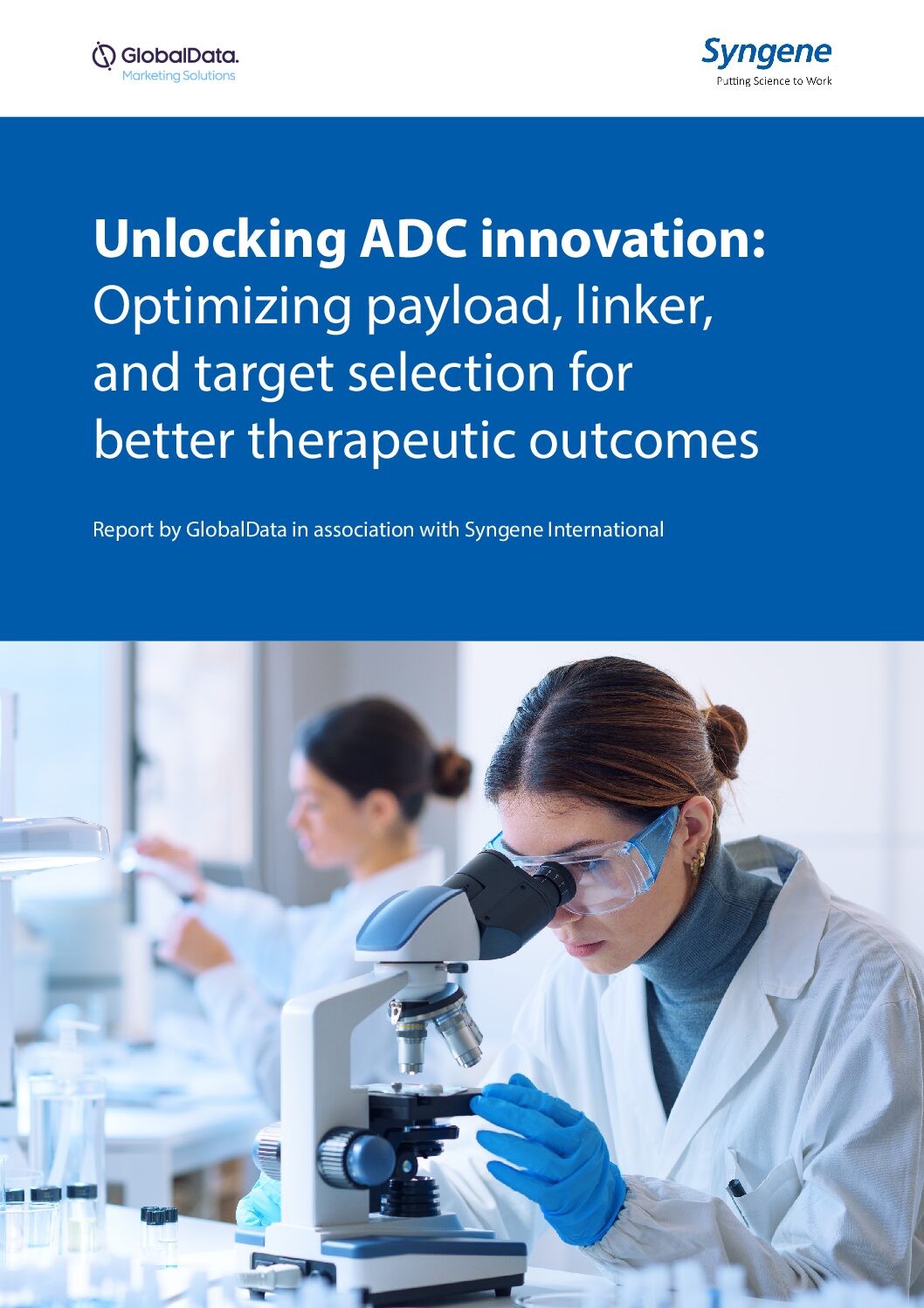

AbbVie’s antibody drug conjugate (ADC) Temab-A (telisotuzumab adizutecan) has demonstrated promising results in a Phase I trial in patients with lung cancer, as the ADC modality continues to take centre stage at this year’s American Society of Clinical Oncology (ASCO) meeting.
AbbVie’s candidate, dubbed internally as ABBV-400, achieved an overall response rate (ORR) of 63% in patients with advanced EGFR (epidermal growth factor receptor)-mutated, non-squamous (NSQ) non-small cell lung cancer (NSCLC). The drug has already demonstrated positive data in patients with wildtype EGFR.

US Tariffs are shifting - will you react or anticipate?
Don’t let policy changes catch you off guard. Stay proactive with real-time data and expert analysis.
By GlobalDataPatients enrolled in the trial were those who had progressed after platinum-based chemotherapy doublet and tyrosine kinase inhibitor(s) (TKIs). Temab-A was administered every three weeks. Patients were initially enrolled at 3 mg/kg, which was later reduced to 2.4 mg/kg.
Immunotherapies currently on market are generally not recommended as first-line treatments for patients with EGFR mutation. Daiichi Sankyo and AstraZeneca’s Enhertu (trastuzumab deruxtecan), the only ADC approved for NSCLC, previously demonstrated an objective response rate (ORR) of 49%. Enhurtu, however, is approved for HER2-mutant NSCLC, making direct comparisons difficult.
AbbVie presented results from its Phase I trial (NCT05029882) at the 2025 ASCO Annual Meeting, taking place from 30 May to 3 June in Chicago, Illinois. The trial is enrolling around 500 adults with NSCLC, gastroesophageal adenocarcinoma, colorectal cancer (CRC) or advanced solid tumours.
Data from the 41 patients enrolled demonstrated a median duration of response at 9.8 months and a median progression-free survival of 10.9 months. These figures were irrespective of c-Met expression, a protein found in NSCLC. Temab-A works by targeting c-Met and delivering a topoisomerase 1 inhibitor payload.
Treatment emergent adverse events occurred in all patients, the most common being haematologic and gastrointestinal side effects. More serious events, those grade 3 and higher, occurred in 78% of patients. As with other ADCs, interstitial lung disease was observed – Temab-A generated a rate of 7% of this respiratory complication in participants.
“Data demonstrate a manageable safety profile, promising anti-tumour activity … and are supportive of further exploration of this novel ADC in this setting,” Dr. Nivedita Aanur, NSCLC clinical lead at AbbVie, told Pharmaceutical Technology.
Nearly 85% of lung cancers are NSCLC, with initial treatment for patients with EGFR mutations including targeted therapy and/or chemotherapy. According to a GlobalData report, the global NSCLC market, valued at $30.7bn in 2021, is set to grow to $45.4bn by 2031.
Approved immunotherapies in the market include MSD’s Keytruda (pembrolizumab), Bristol Myers Squibb’s Opdivo (nivolumab), and Roche’s Tecentriq (atezolizumab). Daiichi Sankyo and AstraZeneca’s ADC Enhertu won approval in NSCLC in the US and Europe in 2022 and 2023 respectively.
Aanur comments: “In addition to the data showcased at ASCO, it has now shown anti-tumour activity in both wild-type and EGFR-mutated advanced NSCLC, demonstrating its potential in these molecularly diverse populations. With its best-in-class potential, we believe Temab-A may offer meaningful patient impact compared to current standards of treatment.”
Temab-A is also in Phase I/II (NCT06772623) development as a first-line treatment for NSCLC without actionable genomic alterations in combination with AbbVie’s investigational programmed cell death 1 inhibitor budigalimab.
AbbVie is also conducting separate Phase II (NCT06107413) and Phase III studies (NCT06614192) with the drug for CRC indications.
AbbVie reported positive Phase II data last year for Teliso-V (telisotuzumab vedotin), also an ADC that targets the c-Met protein but uses a different payload, in EGFR-wildtype NSCLC patients. The treatment, under the brand name Emrelis, is US Food and Drug Administration-approved for adults with locally advanced or metastatic, NSQ non-small cell lung cancer (NSCLC) with high c-Met protein overexpression who have received a prior systemic therapy.
Other ADC data at ASCO this year include Genmab’s rinatabart sesutecan for endometrial cancer treatment, MSD’s zilovertamab vedotin for lymphoma, and Merck’s precemtabart tocentecan for CRC.
ADC content on Pharmaceutical Technology (Or Clinical Trials Arena) is supported by Syngene. Editorial content is independently produced and follows the highest standards of journalistic integrity. Topic sponsors are not involved in the creation of editorial content.
Editor’s note: The third paragraph of this article was updated on 4 June to clarify that patients started at a dose of 3 mg/kg, which was reduced to 2.4 mg/kg. The figure of 73% for serious events in the seventh article was also changed to 78% to reflect full presentation data.






